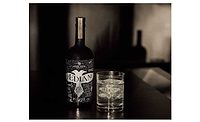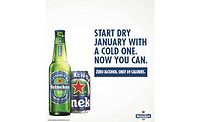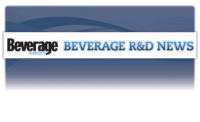2019 Beverage Innovations of the Year
Brands tap into health and wellness, convenience trends

In 2010, Lebron James surprised NBA fans when the power forward signed with the Miami Heat, teaming up with Dwayne Wade and Chris Bosh. The impact of three all-stars coming together to sign with the same team has changed the way players have approached NBA free agency since this headline-grabbing event.
Perhaps not grabbing the same type of media attention as “the decision,” beverage innovators are utilizing their research and development (R&D) skills to create products that also can make a lasting impact on the beverage market. The editors of Beverage Industry selected five innovators that it saw taking a step to push the boundaries of what today’s beverages can deliver to consumers. Through interviews, these innovators are showing the readers of Beverage Industry the many layers that go into new product development.
Heineken 0.0
As health-and-wellness trends extend beyond the liquid refreshment market, beverage alcohol brands are finding innovative ways to deliver on that trend to consumers. Earlier this year, White Plains, N.Y.-based HEINEKEN USA showed that consumers still can enjoy the taste of premium beer but don’t have to reserve it just for evening occasions.
“With well-being and mindful drinking on the rise, Heineken 0.0 is the perfect addition to a beer drinker’s portfolio, allowing them to do more without giving up the drink they love,” says Meredith Kiss, Heineken brand manager. “We wanted to provide a great-tasting brew that is in lockstep with the rising cultural trends around living a balanced lifestyle, which includes moderating alcohol consumption. Heineken 0.0 is made with only natural ingredients and is just 69 calories per bottle. With strong growth in the non-alcohol segment expected to continue, Heineken 0.0 gives drinkers a choice for all their occasions, while offering a game-changing brew that will bring new drinkers to the category.”
The Heineken team remains optimistic about the future for non-alcohol, malt-based beverages because it tastes just like the original Heineken.
“Our Master Brewers applied their considerable expertise to brew the best possible non-alcoholic beer using just natural ingredients,” Kiss says. “It was the result of a 15-year project by Heineken’s Global Master Brewer, Willem van Waesberghe. He explored every aroma, every flavor in Heineken lager to make sure that 0.0 had every bit of those flavors and aromas. The result is a 0.0 beer brewed for beer lovers, by beer lovers.”
Kiss adds that Heineken 0.0 already has exceeded the company’s sales projections while receiving positive feedback from consumers and retailers alike. “We are confident this category will keep gaining importance,” she says. “We’ve only just scratched the surface.”
As the brand heads into 2020, HEINEKEN USA will continue to support the non-alcohol beer segment through campaigns and other marketing investments.
“The Now You Can campaign addresses the key social barriers to drinking alcohol-free beer and the relevant occasions for consumption by positioning Heineken 0.0 as a fun, go-to non-alc choice for traditionally non-beer moments,” Kiss details. “Heineken is spending $50 million behind the brand in 2020 and is on target to double 2019 performance with increases in distribution, particularly on-premise.”
Jägermeister Cold Brew Coffee
In an episode of the PBS Kids show, “Xavier Riddle and the Secret Museum,” Xavier, Yadina and Brad want to tell spooky stories around the campfire. Through the museum’s time-traveling magic, the trio meet Mary Shelley, who teaches the time-travelers about the power of imagination and inspiration.
Although today’s beverage companies might not travel across time for inspiration, they are recognizing that inspiration is not only reserved for within the R&D lab.
“A few years ago, a bar in Texas starting serving shots of half-part cold-brew coffee and half-part Jägermeister,” says Chris Peddy, chief marketing officer of Mast-Jägermeister US. “Not only were we inspired by the taste, the consumer response was overwhelmingly positive. After testing this 50/50 shot in select markets across the U.S., we were convinced that we needed to officially marry the two distinctive tastes together to make recreating that shot anywhere a possibility for all consumers.
“Additionally, since cold-brew coffee is one of today’s fastest growing beverage trends, coupled with consumers’ expanding palates to more bitter herbal flavors, we were eager to create a complex and flavorful product that would complement many new occasions such as brunch, happy hour and those high-energy moments,” he continues.
Peddy notes that the company mobilized quickly to bring the concept to life. It essentially cut the development time in half, he adds.
“When working with our production team in Germany, from the beginning, we knew that we had to set the standard and help people rediscover both Jägermeister and cold-brew coffee with something that would positively disrupt the drinking culture,” Peddy explains.
Testing phases showed strong excitement from consumers. The brand got the same feedback from distributors and retail outlets.
“They believe that this is the perfect time to introduce new distinctive flavors to the category and they appreciate that we did our research on the cold-brew coffee trend and developed something that made sense for the brand and for consumers,” Peddy says. “Early shipments and depletions have exceeded our expectations and we are excited to really ramp up support behind full national distribution in January.”
Joia Spirit
As sugar consumption continues to be under the microscope, beverage-makers are developing new ways to ensure that consumers still can imbibe while keeping their health in mind.
“First and foremost, consumers today are looking for low-sugar, ‘healthier’ options even for their cocktails,” says Mike Morgan, president of Prestige Beverage Group. “The food and beverage industry saw sugar concerns start to affect categories such as yogurt and soft drinks begin more than 10 years ago. That same concern or desire for healthier products has migrated into the alcohol space over the last five years or so, and we have seen an explosion of low-sugar options in both spirit and malt-based canned cocktails in recent years. Joia Spirit provides the health and nutrition profile consumers are seeking with the great taste and refreshment that is still their primary reason for drinking these types of products.”
Morgan adds that reduced alcohol content and convenience also played a factor in the development of the brand. To incorporate all these qualities, the Mendota Heights, Minn.-based company put a lot of thought into the R&D.
“Formulating great-tasting and refreshing products with no to very low-sugar content is not easy,” Morgan says. “That’s why most of the products on the market don’t taste very good. We worked on these varieties for a longer time period than any previous development work and we’re very proud of the result.”
That process has benefited the brand as it has received high praise from consumers and Prestige Beverage customers alike. “Consumers and retailers are loving the new Joia Spirit low-sugar varieties,” Morgan says. “For consumers, they provide the nutrition that they are seeking while providing a better tasting alternative because we use only real spirit alcohols including vodka, gin and tequila which provides a cleaner, crisper, more authentic cocktail flavor. Retailers love the fact that we are providing the low-sugar options consumers are looking for in a spirit-based version, which provides them greater margin dollars than the malt-based alternatives, and they see our new approach to nutrition and ingredient labeling.”
Numi Daily Super Shots
On the PBS Kids video app, the program “Fizzy’s Lunch Lab,” helps explain to kids how different foods impact the body and ultimately how these nutrients operate as fuel. Today’s beverage-makers are taking lessons like this to heart with new product development.
“When it comes to today’s consumer, research shows 65 percent of Americans want more functionality from their food,” says Maria Emmer-Aanes, senior vice president of marketing for Numi Organic Tea. “Consumers, especially Gen Y and Z, are looking for convenience and efficiency, but increasingly won’t settle for overly processed or artificial ingredients. The old motto ‘food is medicine’ is now understood as an important strategy for overall health, in many cases more effective than popping a supplement.”
Recognizing the high-growth of the shots market, the Oakland, Calif.-based brand seized the opportunity to develop a natural solution for consumers.
“Numi’s Daily Super Shots provide functionality and convenience, two major consumer trends at the moment,” she explains. “For example, we feature lion’s mane, which is known as a neuroprotective mushroom that helps with cognitive and memory function. This brain food is an adaptogen, helping to regulate and balance the body when stress is present. It is said to support clarity and mood.”
Emmer-Aanes notes that consumers love the taste, convenience and price point, which has a $3.99 suggested retail price. Meanwhile, retailers are pleased to have a clean, functional line with an appealing price point.
Employing focus groups, Numi was able pinpoint the final ingredient list and functionalities to incorporate high-quality ingredients. Given this legwork and care, the brand is optimistic about Numi Daily Super Shots performance in 2020.
“We have high hopes for the performance of the Daily Super Shots, because the line checks so many boxes that both consumers and retailers are looking for,” Emmer-Aanes says. “They also get rave reviews with respect to taste, which is not typical for this category. We believe that this is truly a case of being in the right place at the right time with the perfect product and can’t wait to watch it all unfold.”
Oikos Pro Fuel
As consumers are looking to cut various ingredients out, efforts also are being made to incorporate functional ingredients. Beverage-makers have taken notice and are putting their R&D efforts into that arena.
“Protein continues to be in high demand with consumers looking for more of it and in new snacking and meal formats. Protein claims are up 43 percent since year 2014 and we anticipate the trend to continue,” says Ben Arbib, brand manager for Oikos, citing Mintel data. “At the core, consumers want to live active, more fulfilling lives and believe both protein and caffeine can help them succeed at this, helping fuel them in our always on, fast-paced world.”
To support these trends, the company developed Oikos Pro Fuel, which underwent several iterations that examined caffeine content, flavor and sugar levels, Arbib explains.
“We learned a ton about the energy and protein drink space, ranging from what flavors work best to which ingredients contribute to an appealing product proposition,” he says. “Each bottle contains caffeine from coffeeberry extract and is equivalent to approximately one cup of coffee.”
Arbib notes that Oikos Pro Fuel is the first product in the portfolio that will be focused on high protein and functional nutrition. As the first out of the gate, the brand will see a dedicated focus from parent company Danone North America, White Plains, N.Y.
“We will continue to build awareness for Oikos ProFuel in 2020 with an integrated marketing campaign inclusive of national advertising, online video, social and in-store promotions,” he says. BI
Looking for a reprint of this article?
From high-res PDFs to custom plaques, order your copy today!






